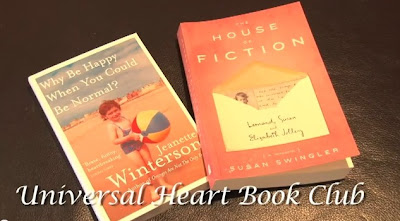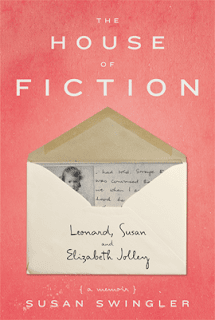Poet and writer Mark S. Burrows takes two slim volumes on his move that are
"fountains of revelation".
Some books refuse to be abandoned. I discovered this in recent weeks as my wife and I moved from our home of twenty years in the northeastern state of Massachusetts across most of the country to the southwestern state of New Mexico. We feel like migrants of sorts, as our plans are to be here for only twelve to eighteen months, but who knows? The only sure thing in life, as the ancient sage Heraclitus reminds us, is change. What is certain is that our plans, even those we consider permanent, will be interrupted by demands or desires we cannot anticipate or manage.
Faced with such a move, the most difficult question—or at least I thought it would be—was how to sift through the thousands of my accumulated books and determine which would make the trip with us. The hundred or so that I selected would tell a story all of its own, revealing the shape of my passions and signaling which of my library of books have a true hold on my mind. Among these, I took two from the contemporary French author Christian Bobin.

Bobin is an author hardly known in the US (or in most of the English-language worlds). Here, he is published by a small press in Iowa that lacks a large New York marketing department. To make matters worse, we are a remarkably language-lazy culture, and only a few of his more than forty volumes are translated from French into English. The two I included among my portable treasures are books I turn back to again and again. Both are collections of “lyric essays,” as the volume’s title suggests, memoirs that draw from Bodin’s experience of life with all its ordinary pleasures and pains, delights and desires. Both are fountains of revelation.
In the essay that gives one of the volumes its English title, “I Never Dared Hope for You,” Bobin describes leaving his village home—and the love of his life—on a trip to Brittany, “a land as beautiful as childhood, a place where fairies and devils get on well together.” But what moved him on this journey was his discovery that “there are stones, water, the sky, the faces—and your name everywhere, singing beneath the name of stones, water, sky and faces.” It is really a love poem, this lyric essay. It tells what it means to carry those we love with us when we leave them, and how memory intensifies our sense of their “presence” across the distances of space and time that come to separate us in such circumstances. Everyone who has ever been in love, or loved another, knows what this is like. And, once we know this, we never forget: the body-memory of such love lodges itself deep within us, in what we refer to as “the heart.” It moves beyond what we can expect or even hope of life. On this point, the French title has a lyric force much stronger than the English version, gathering this experience into a single word:“
L’inespérée.”
What makes this love story different is the way it opens us into dimensions of experience shaped by love but not directly involved in it. That is, if love transfigures something essential within us, then we begin to dwell in the world differently because of it. Things, simple things, ordinary things all about us, become different—because we have become different. Expanded beyond our narrower self. Enlarged by a generosity not of our own making. Deepened beyond the surfaces of our desires.
Thus, when Bobin writes of “purity,” the kind “which has nothing to do with morality,” we begin to understand something more truthful than the narrowing strictures of duty, or a petty ethic of discipline. “Purity,” he goes on to suggest, “is the most common matter on earth. It is like a dog: each time we rest upon nothing but our empty heart, purity comes to sit at our feet and keep us company.” Now, such writing is beautiful, even in English translation. But its lyric elegance and power come from the truths it gestures toward. What is so arresting here is Bobin’s notion that our “empty heart” is the source of true purity, our purity, in this life. Not what we accomplish, but what we relinquish is what finally matters, that “letting-go” that the mystical sage Meister Eckhart calls “Gelassenheit.” Perhaps we might render it as a “letting-be-ness,” the emptying that is so necessary—and counter-intuitive—in our becoming larger, richer, truer to our real self than we would otherwise be.

Could we imagine ourselves as lovers in quest of emptiness, so that we might have “room”—the poet Rainer Maria Rilke’s notion of “Raum”—for a deepening “being-in-this-world,” or what the poet calls simply Dasein? Is being-here enough, and the spaciousness that comes from such an emptying of the distracting clutter in our hearts the road to a purity we would probably otherwise miss?
Who could resist such deeply felt and truthful writing as this? When Bobin returns to the opening theme with which I began this review—his naming of the stones, water, sky, and faces of Brittany—the magic stirs us in the caverns of our hearts: “In Brittany I looked at the faces, the waves, and the skies, and never have I been so aware of the sweetness of this life promised to death: we should enlighten each presence with a love that, each time, is unique, destined to its inconsolable and pure solitude. We should learn to count, one by one, each face, each wave, and each sky, in giving to each one the light it deserves in this darkened life.” Who could set such a book aside without being somehow changed?
This is a book worth reading over and over again. Once you taste of its liquor you’ll probably be like me—and never want to let it go. Not even if you move across country. Or sell the rest of your possessions. And find yourself finally able to empty a space for the wise and fertile wisdom of your heart’s yearning.
Christian Bobin, I Never Dared Hope for You. Lyric Essays, translated by Alison
Anderson (Iowa City, Iowa: Spring Hill
Books, 2009).
We will review Mark S. Burrows' eagerly awaited Rainer Maria Rilke, Prayers of a Young Poet (Paraclete Press), soon after its October 2012 publication. You can order any book mentioned on this site - or others - via our affiliate bookstores (above right). We eagerly welcome your comments. And we invite you to click on any of the social media links below to reach your own circles with articles from this page.















